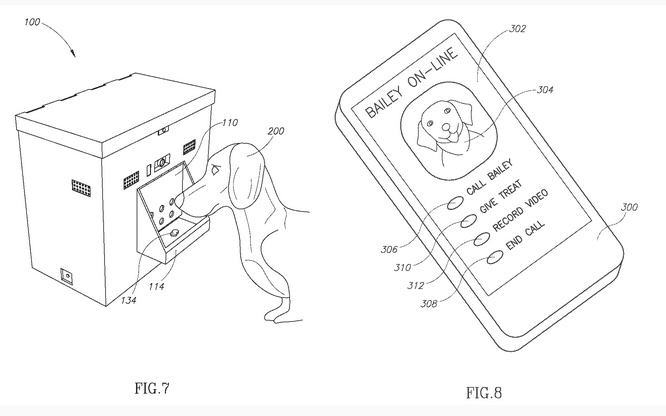Support IPWatchdog with an individual sponsorship: Click here
“The claim language requires that the pet’s activity begins transmission, not that the pet’s activity simply causes transmission.” – CAFC

Today, the U.S. Court of Appeals for the Federal Circuit issued a ruling in DoggyPhone LLC v. Tomofun LLC affirming the Western District of Washington’s entry of summary judgment of noninfringement on DoggyPhone’s patent claims to a system for remote human-pet interaction. The Federal Circuit found that Tomofun’s accused system did not begin transmission of live video or audio responsive to pet input, concluding that there was no genuine dispute of material fact on one of three independent bases for the district court’s noninfringement ruling.
Furbo Pet Communication System at Center of DoggyPhone’s Infringement Allegations
DoggyPhone filed an infringement lawsuit in the Western Washington district court in 2019, alleging that Tomofun’s Furbo interactive pet camera device infringed upon claims of U.S. Patent No. 9723813, Internet Canine Communication Device and Method. The ‘813 patent claims a system for communicating with a pet by transmitting live video or audio to a remote client in response to input from the pet.
DoggyPhone alleged that claim 7 of the ‘813 patent was infringed by the Furbo system, which allows users to communicate with their pets via a mobile device app. Tomofun’s Furbo operates in either a standard mode, in which users receive a text notification for viewing pet audio or video in response to pet activity like barking, or a cloud recording mode, in which the system sends recorded audio or video to the cloud and a text notification to a user for viewing the recorded media.
The present appeal followed the summary judgment ruling of U.S. Senior District Judge Barbara Jacobs Rothstein, who held that Tomofun’s Furbo system did not infringe the asserted claims of the ‘813 patent. Judge Rothstein bases for granting summary judgment included the Furbo’s lack of a food dispenser structure and lack of a delivery module for receiving pet input from a treat delivery command. On appeal, however, the Federal Circuit focused on the district court’s determination that the Furbo did not meet the claim limitation “begins transmission to the remote client device of live audio or video of the pet in response to input from the pet.”
Claim Language Requires Pet Input to Begin Transmission, Not User Interaction
DoggyPhone argued to the Federal Circuit that the Furbo’s text notification responsive to pet activity met the “begins transmission” limitation, the pet activity being a but-for cause of the media transmission to the remote client. Under the plain and ordinary meaning of the disputed claim limitation, DoggyPhone contended that this limitation of the asserted claim did not require a direct causal connection without any intervening user inputs like interaction with the Furbo’s text notification.
However, the Federal Circuit found that the asserted claim language required the system to begin transmission responsive to pet input, not to begin a process of transmission. The appellate court found that the undisputed record in the district court established that Tomofun’s accused system did not transmit audio or video without user interaction with the text notification. Thus, the Federal Circuit reasoned that the Furbo system transmits media in response to a user’s input and not a pet’s input.
Under DoggyPhone’s proposed construction, the Federal Circuit opined that it would have to read the “begins… in response to” portion of the disputed claim limitation as a mere identification of steps on a causal chain. However, this causal chain is not sufficient to establish infringement as “[t]he claim language requires that the pet’s activity begins transmission, not that the pet’s activity simply causes transmission.” On the record, there was no genuine dispute of material fact that Tomofun’s Furbo system begins transmission based on pet input without user interaction.
Along with the other independent bases for the district court’s summary judgment ruling, the Federal Circuit left in place the lower court’s conclusion that Tomofun’s Furbo did not infringe the ‘813 patent under the doctrine of equivalents. The appellate court only considered literal infringement as DoggyPhone did not raise arguments on the doctrine of equivalents on appeal.

